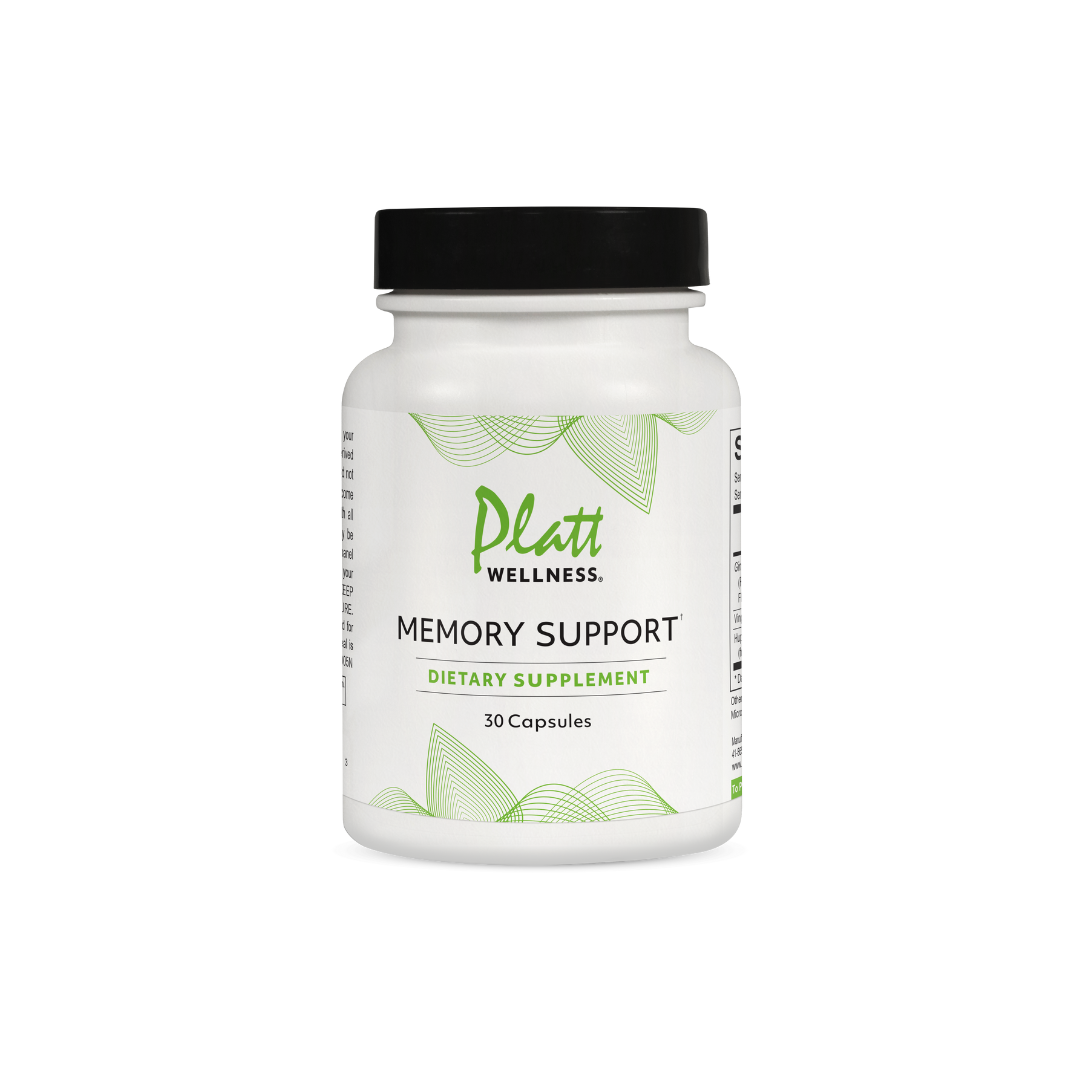Touted as the ‘worst kept weight loss secret’ in Hollywood, the wildly popular drug ‘Ozempic’ was intended to help diabetes patients control their blood sugar. But the drug's loss of appetite side effect, made this an ideal weight loss drug for those wanting to lose weight easily. The word quickly got out and drove demand up for this drug, thus creating a shortage and price increase for people it was originally intended to help.
Now, the EU’s regulators are investigating whether the active ingredients in Ozempic and Saxenda (semaglutide and liraglutide) pose a risk of suicidal thoughts or self-harm to patients.
The active substance in Ozempic, semaglutide, is a 'GLP-1 receptor agonist'. It acts in the same way as GLP-1 (a hormone produced in the gut) by increasing the amount of insulin that the pancreas releases in response to food. This helps with the control of blood glucose levels.
Since 2018, the FDA’s reportedly received at least 60 reports of suicidal thoughts in connection to semaglutide from patients or their doctors. However, the FDA reportedly hasn’t verified those cases. In the US, weight-loss drugs like Wegovy already recommend that patients be monitored for signs of self-harm or suicide. The EU investigation could lead to updated drug labels on weight-loss medications that currently don't issue similar warnings. Meanwhile, Novo Nordisk — which makes Ozempic and Saxenda — said their patients’ safety is a “top priority.” The company also pointed out that late-stage trials didn't link its drugs to thoughts of suicide or self-harm.
Keep in mind, once you stop taking Ozempic any lost weight will return.
There have also been cases of pancreatitis and even pancreatic cancer due to these drugs.
Dr. Platt’s Safe Approach to Weight Loss and Well Being
In my 30+ plus career practicing hormone replacement therapy, I have always approached health concerns by addressing the underlying cause. I have found that when it comes to weight, balancing your hormones is the most natural, safe and effective approach.
What most people are not aware of, is that one of the biggest causes of weight gain is excess adrenaline, which is also a hormone.
Because your hormones control every system in your body, you can address many health conditions with an effective HRT program and meal plan.Your body will start to heal and unwanted or symptoms often found incurable, start to vanish. Not only that, you will have more energy and be well balanced.
How does Adrenaline affect your weight?
Adrenaline, a hormone that most people know as the “fight-or-flight” hormone, is released in large quantities whenever we are in danger. It is an extremely powerful hormone and has significant physiological effects on our body. These episodes are usually short-lived, and as soon as the danger passes the adrenaline levels go back down.
However, there is another reason the body releases adrenaline, and it can occur throughout the day and night for sustained periods when the brain needs fuel.
When your body detects low fuel levels in the brain, the body initiates a process called gluconeogenesis – the making of sugar from protein. It is mediated via the sympathetic nervous system – i.e. adrenaline. When sugar is taken away from the brain, the brain falls asleep – this is commonly referred to as hypoglycemia. People with this condition will find they are sleepy in late afternoons and fill the need to eat sugar or have more coffee.
The effect of adrenaline can go in either direction. On the one hand, adrenaline can increase metabolism and energy levels, which promotes the burning of fat. We often see this in children diagnosed with typical type ADHD: they are hyperactive and usually on the thin side, and in high school and college, they often participate in sports. Professional athletes are likely to have excess adrenaline, as are people designated as workaholics and type A personalities. These groups generally do not have weight issues. On the other hand, people with excess adrenaline who are not particularly active—that is, those with creative type ADHD—may experience increased weight or be constantly fighting to prevent weight increase.
If the person is not eating correctly to fuel the brain, the body will continuously put out adrenaline to raise the sugar level to supply fuel to the brain. As you might realize by now, the increase in sugar causes an increase in insulin, which pushes sugar into fat cells, where the sugar is converted into fat. People who put out a lot of adrenaline at night are often in the unique position of gaining weight even while they are sleeping. This is in addition to the other characteristics of elevated nighttime adrenaline, such as tossing and turning, grinding teeth, restless leg syndrome, and getting up to urinate.
I suspect there is an unrecognized epidemic of ADHD—in particular, creative type ADHD—in which excess adrenaline is significantly raising the incidence of obesity in people of all ages.
Addressing these people’s weight issues from the standpoint of adrenaline could not only improve their weight but also help them to focus better. Not only does excess adrenaline by itself contribute to weight gain, it also stimulates the release of cortisol and possibly also glucagon. So now there are two or three hormones raising the sugar level, stimulating insulin release, and creating fat.
On the other hand, excess adrenaline can also reduce a person’s appetite. This is often what’s happening with people who regularly skip breakfast: they release so much adrenaline during the night that they don’t want to eat in the morning. They can end up essentially living on adrenaline through the persistent cyclical release of sugar and insulin it precipitates.
Excess adrenaline can also create a craving to drink alcohol in order to relax—another potential cause of weight gain. In addition, medications prescribed for medical conditions caused by excess adrenaline can encourage increased weight. Both the antidepressants given to people with anger issues or depression and the beta-blockers frequently prescribed for people with hypertension or palpitations can cause weight gain. The drugs that type II diabetics are frequently given to raise the insulin level also create fat.
And most people diagnosed with adrenal fatigue may have excess adrenaline, mainly if they used a saliva test, which cannot achieve accurate results.
I would be remiss if I did not also mention how our healthcare system contributes to the current epidemic of obesity. Even though obesity is now considered a disease, many doctors still consider it an eating problem and ignore the possibility that there are underlying metabolic issues. I have seen countless patients who had gone from doctor to doctor looking for answers, and were given the same advice by them all: eat less. It is important for the healthcare practitioner to sit down and talk to the obese patient. The practitioner needs to look and listen for clues indicating hormones out of balance—excess adrenaline, insulin, cortisol, or estrogen, or a low-functioning thyroid.
What drugs is the person taking?
What are the person’s eating and drinking habits and activity level?
One of my patients—a classic if somewhat extreme case of creative type ADHD—weighed 420 pounds when he first came to see me. The amount of adrenaline required to cause that amount of weight gain also provoked other problems, such as alcoholism and fibromyalgia. This man’s previous doctors had accused him of eating too much, even though he assured them he wasn’t.
If they had been listening to him, the fact that he was not a big eater would have been the first clue that he had a hormone problem, not an eating problem. This patient presented as a textbook case of imbalanced hormones in terms of both his history and his appearance. Not only was his body pouring out insulin, cortisol, and adrenaline, his excess fat was producing a lot of estrogen, which is a lipogenic (fat-creating) hormone, causing him to put on fat around his hips, thighs, and buttocks. His high insulin level put on weight around his middle. I was not surprised to find that his thyroid level was low-normal, which contributed to fat deposition everywhere.
After I started treating him with progesterone cream, a meal plan designed to reduce adrenaline, and thyroid supplementation, his adrenaline level dropped, his fibromyalgia disappeared, and he reported feeling better than at any time in his life. After losing 240 pounds, he got down to a waist size of 32 inches. He had been suicidal when I first met him, and at the age of 47 he had never had a single date in his life. After he lost weight and improved his well-being, he started dating, got engaged, and is now happily married.
Our Adrenaline Dominance Bundle has everything you need to get started.
Dr. Michael E. Platt has been a pioneer in the research and advancement of the therapeutic use of progesterone cream for use in managing adrenaline and hormonal imbalance. Dr. Platt is considered an important pioneer in observational, functional, alternative, and allopathic medicine focused on bio-identical hormones and adrenaline overload. His three books “The Miracle of Bioidentical Hormones”, “Adrenaline Dominance” and “Platt Protocol” have received 11 literary awards.
The Platt Wellness Team is pleased to assist you with information about our products. Please know we are not licensed medical professionals and therefore cannot provide you with any medical advice or information. If you require medical advice or information please contact a medical or health care professional. Please remember the information contained in this email message is for informational purposes only. The statements in this email have not been evaluated by the Food and Drug Administration and are not intended to diagnose, treat, cure, or prevent any disease.








